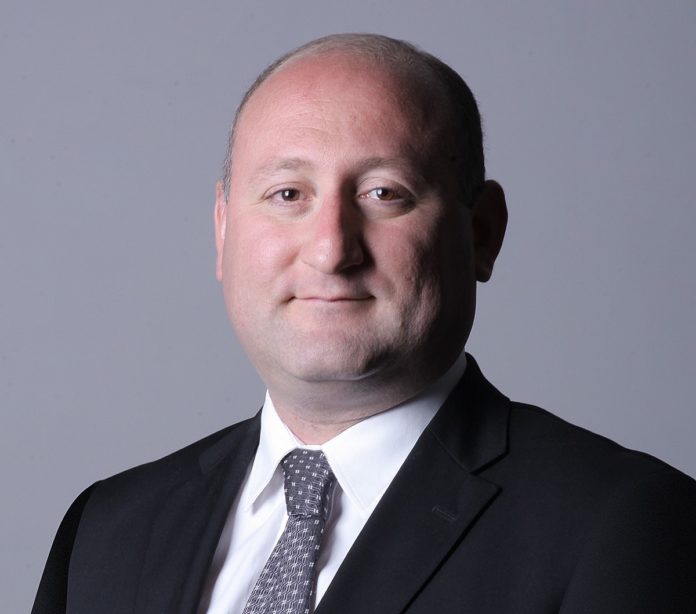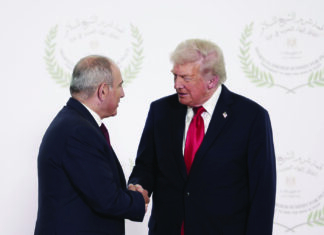The 16th BRICS+ summit took place in Kazan, Russia from October 22 to 24, 2024. This was the most significant international event for Russia since the full-scale invasion of Ukraine in February 2022. At the time of the summit, nine countries confirmed their membership in BRICS: Brazil, Russia, India, China, South Africa, Egypt, Iran, the UAE, and Ethiopia. More than 30 delegations from all over the world participated in the summit, 24 of them at the level of heads of state and government. Among those invited were Xi Jinping from China, Prime Minister Narendra Modi of India, and Iranian President Masoud Pezeshkian. Among the attendees was UN Secretary-General António Guterres, who has been criticized in Ukraine for his participation. For Russian President Vladimir Putin, the Kazan summit was a chance to demonstrate that, despite sanctions, Russia remains a significant global player.
Armenian Prime Minister Pashinyan also arrived in Russia to participate in the summit. Earlier, in the Armenian National Assembly Pashinyan had stressed that one of the important reasons for attending the summit is the personal invitation of Putin. Otherwise, Armenia is currently not planning on becoming a member of the association as confirmed by Armenia’s Deputy Prime Minister Mher Grigoryan.
Pashinyan’s attendance at the event is noteworthy, especially since he previously avoided similar gatherings. This time, he participated openly, suppporting Russia’s intent to demonstrate its ability to host large-scale events despite sanctions. Russia invited leaders from countries like India and China. Consequently, the presence of numerous heads of state was significant.
In Kazan, Pashinyan held a meeting with President of the Islamic Republic of Iran Masoud Pezeshkian and emphasized that “further development of relations with Iran is one of the priorities of the Armenian government.” Apart from that, Pashinyan was noticed having an informal discussion with Azerbaijani President Ilham Aliyev during the plenary session of the 16th BRICS+ Summit in the outreach/BRICS Plus format. In the beginning of the session Pashinyan and Aliyev, who were seated next to each other, exchanged a few phrases. Later a bilateral meeting occurred between Aliyev and Pashinyan, during which discussions focused on advancing the bilateral peace agenda, including a peace agreement, border delimitation and demarcation, and other mutual concerns. The Armenian PM’s office stated that the two countries’ foreign ministers were tasked with continuing negotiations on the Agreement on Peace and Establishment of Interstate Relations, aiming for its prompt finalization. In his turn, President Putin stated that the demarcation process between Armenia and Azerbaijan is the proper path to a peace treaty.
Only days ago, President Biden sent letters urged both countries’ leaders to accelerate peace talks and complete an agreement by years-end. The Biden administration has three months left to transition power to either Trump or Harris. Biden aims to see the progress made during his administration on Armenian-Azerbaijani relations reach a logical conclusion, hoping to be viewed as the “godfather” of a peace agreement. With more foreign policy experience than any US president in the past 30 years, Biden understands that neither a Trump nor Harris administration will prioritize this region, which could hinder the impact of his achievements. He desires to leave behind a significant legacy in peacebuilding that is currently unparalleled.
The conclusion of a peace agreement in the South Caucasus, as highlighted in Biden’s national security strategy, is a key factor in US foreign interests, compelling the Biden administration to advocate for these objectives until the very end. But the Pashinyan-Aliyev meeting location in Russia, rather than Europe or the US, is notable, as the Russian Federation may seek a mediating role, especially given the outgoing Biden administration and the contentious US elections. Whether Russia can take the lead from Washington will depend on the next US president. For either Harris or Trump to continue Biden’s policies in the South Caucasus could complicate matters for Moscow.








